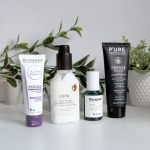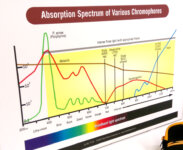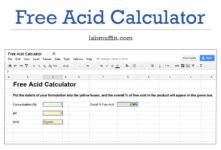Retinol is one of the most highly hyped anti-aging skincare ingredients. But what is it, and what exactly does it do? That’s the focus of this Fact-check Friday!
What does retinol do?
Retinol is a form of vitamin A. Other forms of vitamin A in skincare that you may be familiar with include isotretinoin (better known as Accutane) and retinyl palmitate (another topical ingredient found in many creams).
Things retinol can help:
- fine lines and wrinkles
- skin roughness and dullness
- skin firmness
- pigmentation from age spots
- acne
How does it do this? Well, first we need to look at the structure of skin…
Collagen in the skin
Collagen is the major structural protein in our bodies. It’s a lot like the woody branches of a tree – without the branches, there would be nothing to hold the leaves up. Without collagen, there would be nothing to hold the cells together.
When we’re young, collagen is made quickly by the body. However, as we age, collagen synthesis slows down (and you don’t even have to be that old – collagen synthesis slows down when you’re past 20). There are also a host of other factors that can slow down collagen synthesis – UV exposure, diet, stress, drinking or smoking. If a tree lost half its branches, it would have less leaves and start looking patchy; similarly, with lost collagen, less cells are held in the skin and it starts looking rough, uneven, saggy and wrinkly.
Retinol and collagen
To become active, retinol must first be converted to tretinoin (in pharmacology, a drug that needs activating in the body is known as a “pro-drug”). This is done by enzymes in the skin. Then it can work in a number of ways to improve the skin.
Firstly it acts to increase the amount of collagen in the skin by inactivating matrix metalloproteinases (MMPs), enzymes in the skin which break down collagen. These are made more active by UV light. Retinol also works by increasing cellular turnover – that is, increasing the rate at which old skin cells are replaced by new ones. Finally, retinol is also an antioxidant – it stops reactive free radicals, generated by UV exposure or toxins in the environment, from wreaking havoc in your skin.
Extra tips on using retinol
Retinols can be irritating to the skin, and cause dehydration. To reduce the chances of this happening, you should introduce it into your routine slowly (don’t use it every day to begin with), and use extra hydrating moisturisers.
Retinol breaks down with exposure to light and air. Pick a retinol product in an airtight, opaque container to improve its shelf life.
Using retinol with other excellent skin treatments like AHAs and vitamin C can speed up the skin renewal process, fading hyperpigmentation and wrinkles faster. However, the activation of retinol by skin enzymes is optimal at a higher pH (5.5-6) than the pH for AHAs (3.5). While there isn’t much research on how quickly the pH of skin readjusts itself, waiting an hour or so in between applying the two is a safe bet, or even using one in the morning and one in the evening.
Retinol, much like AHAs, can make the skin more susceptible to sunburn. Wear extra sunscreen when you use retinol so you don’t completely reverse its beneficial effects!
References
Lab Muffin – What does vitamin A do for your skin?
S Mukherjee et al., Retinoids in the treatment of skin aging: an overview of clinical efficacy and safety, Clin Interv Aging, 2006, 1, 327.







Thank you for the awesome and informative post. As a newer retinol user (6 months or so) I am eager to get any info I can, and this post touched on all the aspects I am curious about such as mechanism of action. Thanks again!
Hello, Michelle. As always thanks for a very informative post. I’ve stumbled on your site a week ago and have not read other skincare blogs since (I really love that you explain complex concepts in simplified terms). I will be trying retinol next week but I have read that combining retinol with other acids could hamper the enzymatic process of retinol (I apologize if I’m using the wrong terms). I have two questions.
1. I’m not a morning person (I wake up just a few minutes before I go to work so I don’t really have time). I do most of my skincare at night. I want to use AHA with retinol because my skin has been acting up lately. What should go first? And do you think 20 minutes is enough for retinol to take its active form?
2. This is really a very stupid question so please don’t laugh hehe. You said the retinol is supposed to be followed up by a moisturizer because it’s very drying. I sometimes use a moisturizer that has glycol in it and sometimes essential oils. My question is: If retinol is supposed to work optimally without the interference of acid, isn’t glycol an acid too? Aren’t plant-based oils basically fatty acids? Will they, then, interfere with my retinol? Or are these kinds of “acids” different from AHA/BHA/L-ascorbic?
Thanks and more power to your blog.
Hi, Michelle…
I stumbled upon someone’s video telling story about her experience doing Fraxel. Her skin flaws were just disappeared. How envious. Considering the price, it made me wondering, “Is there any chance skincare gives us same result?”
I’d really like to hear some thoughts from you on this
Thanks ^^